
The Special Air Service (SAS) is a special forces unit of the British Army. It was founded as a regiment in 1941 by David Stirling, and in 1950 it was reconstituted as a corps. The unit specialises in a number of roles including counter-terrorism, hostage rescue, direct action and special reconnaissance. Much of the information about the SAS is highly classified, and the unit is not commented on by either the British government or the Ministry of Defence due to the secrecy and sensitivity of its operations.

Joseph Alberic Twisleton-Wykeham-Fiennes, known as Joseph Fiennes, is an English actor of film, stage, and television. Fiennes is particularly known for his versatility and period pieces. Journalist Zoe Williams observed that "he seemed to be the go-to actor for English cultural history". His numerous accolades include one Screen Actors Guild Award and nomination for a British Academy Film Award.
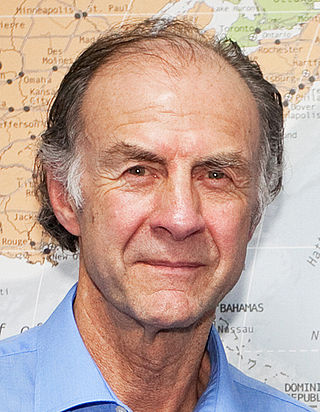
Sir Ranulph Twisleton-Wykeham-Fiennes, 3rd Baronet, commonly known as Sir Ranulph Fiennes and sometimes as Ran Fiennes, is a British explorer, writer and poet, who holds several endurance records.
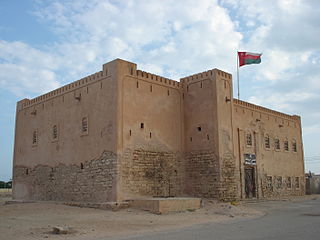
The Battle of Mirbat was an attack by Communist guerrillas targeting an Omani government position during the Dhofar Rebellion in the town of Mirbat, Oman. During the Dhofar Rebellion, Britain assisted the Omani government, an absolute monarchy, by sending elements of its Special Air Service (SAS) both to train soldiers and fight against the Popular Front for the Liberation of the Occupied Arabian Gulf (PFLOAG) guerrillas, also known as the Adoo. The assault was defeated after the arrival of several BAC Strikemaster attack aircraft belonging to Oman, firing rockets at PFLOAG's positions which forced the guerrillas to retreat. After the battle the British and their allies recovered the corpses of the attacking guerrillas, some were put on public display as a tool of terror, to act as warnings to potential left-wing rebels who were tempted to join the rebellion against Oman's government.
Steven Billy Mitchell, usually known by the pseudonym and pen-name of Andy McNab, is a novelist and former Special Air Service soldier.
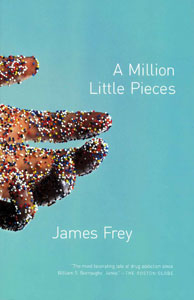
A Million Little Pieces is a book by James Frey, originally sold as a memoir and later marketed as a semi-fictional novel following Frey's admission that many parts of the book were fabricated. It tells the story of a 23-year-old alcoholic and abuser of other drugs and how he copes with rehabilitation in a twelve steps-oriented treatment center.

The Twisleton-Wykeham-Fiennes Baronetcy, of Banbury in the County of Oxford, is a title in the Baronetage of the United Kingdom. It was created in the 1916 Birthday Honours for the Liberal politician and decorated military officer the Hon. Eustace Twisleton-Wykeham-Fiennes.

Gay pulp fiction, or gay pulps, refers to printed works, primarily fiction, that include references to male homosexuality, specifically male gay sex, and that are cheaply produced, typically in paperback books made of wood pulp paper; lesbian pulp fiction is similar work about women. Michael Bronski, the editor of an anthology of gay pulp writing, notes in his introduction, "Gay pulp is not an exact term, and it is used somewhat loosely to refer to a variety of books that had very different origins and markets". People often use the term to refer to the "classic" gay pulps that were produced before about 1970, but it may also be used to refer to the gay erotica or pornography in paperback book or digest magazine form produced since that date.
The Transglobe Expedition (1979–1982) was the first expedition to make a longitudinal (north–south) circumnavigation of the Earth using only surface transport. British adventurer Sir Ranulph Fiennes led a team, including Oliver Shepard and Charles R. Burton, that attempted to follow the Greenwich meridian over both land and water. They began in Greenwich in the United Kingdom in September 1979 and travelled south, arriving at the South Pole on 15 December 1980. Over the next 14 months, they travelled north, reaching the North Pole on 11 April 1982. Travelling south once more, they arrived again in Greenwich on 29 August 1982. It required traversing both of the poles and the use of boats in some places. Oliver Shepard took part in the Antarctic leg of the expedition. Ginny Fiennes handled all communications between the land team and their support, and ran the polar bases.
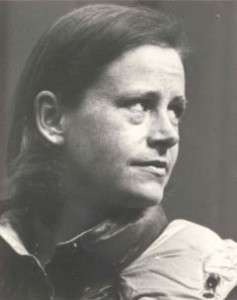
Virginia Frances, Lady Twisleton-Wykeham-Fiennes, known as Ginny Fiennes, was an English explorer. She was the first woman to be awarded the Polar Medal, and the first woman to be voted in to join the Antarctic Club in recognition of her research work for the British Antarctic Survey and University of Sheffield into very low frequency radio propagation. Her husband was adventurer Ranulph Fiennes.
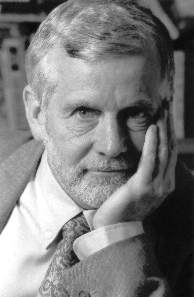
William Allen Harbinson, who writes under the name W. A. Harbinson, is a British author. He is best known for his Projekt Saucer five-volume series of science fiction novels. He also writes war novels, many with a special forces theme, under the pseudonym Shaun Clarke.

Kenton Edward Cool is an English climber and mountain guide. He is one of Britain's leading alpine and high altitude climbers and has reached the summit of Mount Everest 18 times, including leading Sir Ranulph Fiennes' 2008 and 2009 Expeditions.
Major Michael John Anthony Kealy, was a British Army officer who served in the Special Air Service and was awarded the Distinguished Service Order for his role in the Battle of Mirbat in 1972. Kealy was the commander of a nine-member SAS squad, which came under attack from hundreds of Popular Front for the Liberation of the Occupied Arabian Gulf guerillas during the Dhofar Rebellion in Oman.
William John Fiennes FRSL is an English author best known for his memoirs The Snow Geese (2002) and The Music Room (2009).
The Ballygawley bus bombing was a roadside bomb attack by the Provisional Irish Republican Army (IRA) on a bus carrying British soldiers in Northern Ireland. It occurred in the early hours of 20 August 1988 in the townland of Curr near Ballygawley, County Tyrone. The attack killed eight soldiers and wounded 28. In the wake of the bombing, the British Army began ferrying its troops in and out of County Tyrone by helicopter.
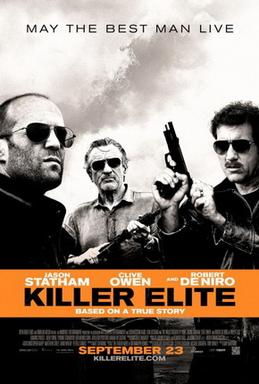
Killer Elite is a 2011 action thriller film starring Jason Statham, Clive Owen and Robert De Niro. The film is based on the 1991 novel The Feather Men by Sir Ranulph Fiennes and is directed by Gary McKendry.
Gary McKendry is a Northern Irish film and television commercial director. His short film Everything in This Country Must was nominated for an Academy Award in 2005.

Elliot Ackerman is an American author and former Marine Corps special operations team leader. He is the New York Times–bestselling author of the novels 2034: A Novel of the Next World War, Red Dress In Black and White, Waiting for Eden, Dark at the Crossing, and Green on Blue, and the upcoming Halcyon: A Novel, as well as the memoirs The Fifth Act: America’s End in Afghanistan and Placesand Names: On War, Revolution, and Returning. His books have received significant critical acclaim, including nominations for the National Book Award, the Andrew Carnegie Medals in both fiction and non-fiction, and the Dayton Literary Peace Prize. He served as a White House fellow in the Obama administration and is a Marine veteran who served in Iraq and Afghanistan. He is a contributing writer to The Atlantic and The New York Times. He was awarded the Silver Star, the Bronze Star with Valor, and a Purple Heart during his five deployments to Afghanistan and Iraq.
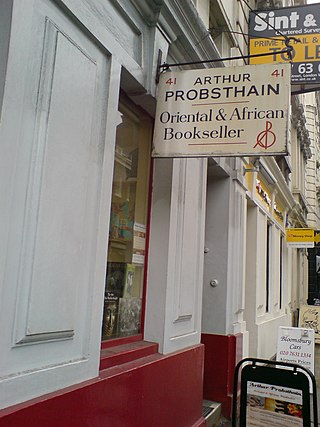
Arthur Probsthain is an independent bookstore based in London, specialising in antique Asian and African books.
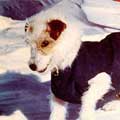
Bothie, also known as Bothie the Polar Dog, was a long-haired Jack Russell Terrier who was the only dog to travel to both the South and North Poles. Bothie was owned by Ranulph Fiennes and Ginny Fiennes and accompanied the team on the circumpolar Transglobe Expedition from 1979 to 1982.














